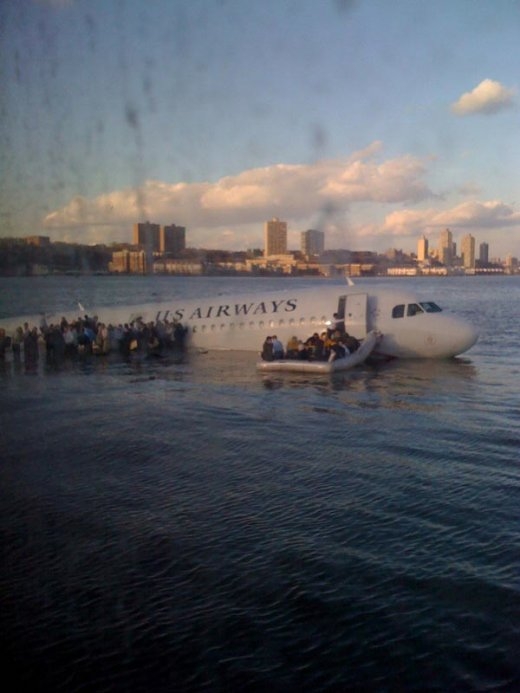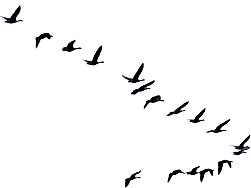
[Photo via TWITTER]
NEW YORK TIMES: A US Airways plane that took off Thursday at 3:26 p.m. from La Guardia Airport landed in the Hudson River five minutes later, where it remains mostly submerged. Ferries and other boats converged to help with a rescue effort, as the plane drifted south in the water. Initial reports from police and people at the scene suggest that many of the people on the plane appeared to have escaped. MORE
UPDATE: FAA reports that all passengers have been rescued, with no fatalities. Initial reports indicate a flock of geese may gotten sucked up in the plane’s engine…DEVELOPING…
LA TIMES: US Airways Flight 1549 had just taken off from LaGuardia Airport en route to Charlotte, N.C., when federal officials said it might have flown through a large flock of Canada geese, sucking some into its engines. As it dipped down near the George Washington Bridge and skimmed south along the edge of Upper Manhattan, scores of people watched in horror from nearby high-rises. “It completely just hit the water full-force, never bounced or anything like that, and came to a relatively quick stop,” said Robin Roberts of “Good Morning America,” who saw  the plane’s crash landing from her apartment window and described it for ABC News. “But it never — it didn’t skim along the water. There was very little trauma to the aircraft. . . . [I] still can’t believe what I saw.”
the plane’s crash landing from her apartment window and described it for ABC News. “But it never — it didn’t skim along the water. There was very little trauma to the aircraft. . . . [I] still can’t believe what I saw.”
Rory Kay, an active airline pilot who is executive air safety chairman for the Air Line Pilots Assn. International, said that what pilots called “bird ingestion” could cause at least partial engine failure. If birds are sucked into just one engine, Kay said, a pilot usually can make it to the nearest airfield or airport. “As long as you’ve got that remaining engine available to you, you hold quite a few aces up your sleeve,” he said. “When both are taken away from you, you’ve got to make some rapid decisions.”Kay said it’s “quite rare, but certainly not unheard of,” for birds to shut down two engines of a plane. “Both the aircraft and the engine are designed to take bird strikes,” he said. “But if you just keep throwing a large flock of birds at that engine, there comes a breaking point. And just a single goose could desperately damage an engine if it gets in. If you get more than one goose, you’re certainly stacking the odds against yourself.” MORE
